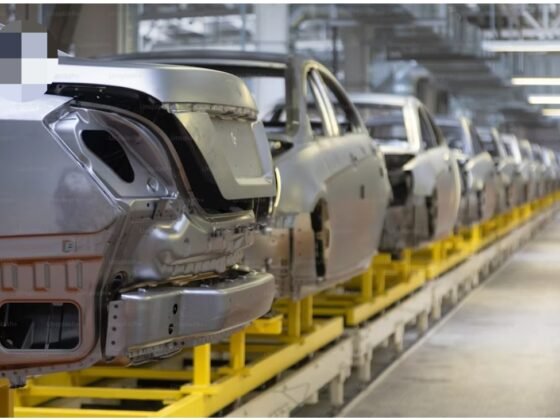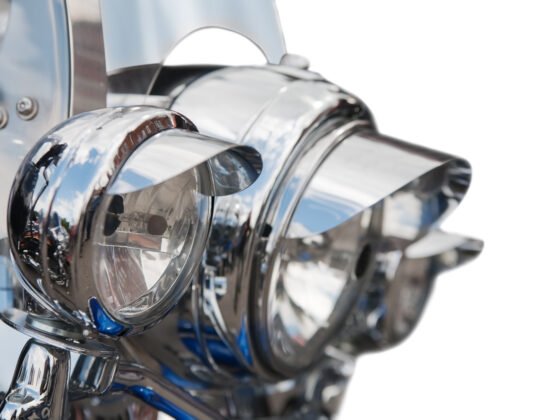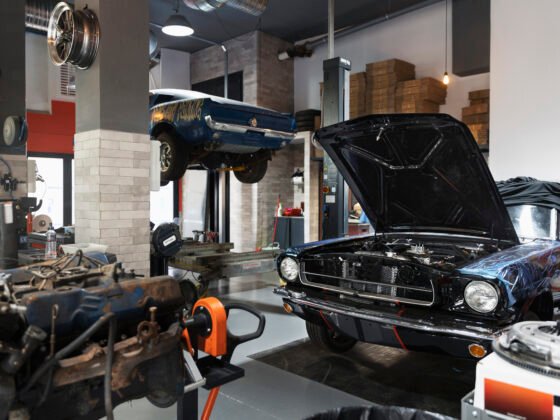If you’re a car enthusiast, mechanic, or small business owner looking to rent an automotive garage, finding the right space can make a big difference. Renting a garage tailored to automotive work provides you with a designated area to work on cars, whether it’s for routine maintenance, repairs, or customization. Here’s what you need to know to find the best garage for your automotive needs.
1. Determine Your Needs
Before you start searching, it’s important to identify what you’ll need in a rental space. Consider the following:
- Size Requirements: Are you working on one car at a time, or will you need space for multiple vehicles? Some garages offer just enough space for a single car, while others are large enough to accommodate several.
- Equipment: Some garages come with built-in equipment, like lifts, air compressors, and tire machines. If you already have your own equipment, you may not need these amenities, which could save on rental costs.
- Security: Automotive garages often contain valuable equipment and vehicles. Look for spaces with good security measures, such as cameras, secure locks, and gated access.
2. Location Matters
The location of your automotive garage is essential, especially if you’re running a business. A garage near busy roads, highways, or commercial areas can help attract customers. However, if the garage is for personal use, you might prioritize proximity to your home.
- Accessibility: Make sure the location is easily accessible to both you and potential clients. Check parking availability for customers and delivery vehicles.
- Zoning Regulations: Some areas have zoning laws that restrict the types of activities you can perform in a rental space. Confirm that the property is zoned for automotive work to avoid any issues down the line.
- Noise Regulations: If your garage is in a residential area, be aware of local noise regulations, which can affect your working hours.
3. Garage Amenities and Utilities
An automotive garage requires specific amenities and utilities to function efficiently. Here are a few to consider:
- Electricity and Power Supply: Most automotive work requires a steady power supply for tools and equipment. Check if the garage has sufficient electrical outlets and if there’s an option for 220-volt power if you need it.
- Water Supply and Drainage: Working on vehicles often involves washing and cleaning, so having a reliable water supply and drainage system can be useful. Some garages may also have oil traps in the drains to prevent environmental hazards.
- Heating and Ventilation: In colder regions, heating is essential to keep the garage comfortable for work. Proper ventilation is also crucial, especially when working with chemicals or performing paint jobs.
4. Cost Considerations
The cost of renting an automotive garage can vary widely depending on location, size, and amenities. It’s essential to budget carefully and consider additional costs like funds, utilities, and any renovations or modifications needed.
- Monthly Rent: This will likely be your primary expense. Compare rates in your area to find a competitive price that fits your budget.
- Deposit and Lease Terms: Most landlords require a deposit, and some may ask for a longer lease term. Be sure to read the lease carefully to understand your obligations and any potential penalties for breaking it.
- Funds: Automotive garages contain valuable tools, equipment, and vehicles, so having funds is critical. You may need a specialized policy that covers both property and liability.
5. Lease Agreements and Conditions
Read the lease agreement carefully before signing. Some critical points to look for include:
- Duration and Renewal Options: Check how long the lease lasts and if there are options for renewal. A long-term lease might offer stability if you plan to run a business.
- Maintenance Responsibilities: Some leases require tenants to handle certain maintenance tasks, while others may cover them under the rental agreement.
- Permitted Use: Some garages specify what activities are allowed on the premises. If you plan to paint cars or perform high-impact modifications, make sure these are permitted.
6. Safety and Compliance Standards
Automotive garages must meet specific safety and compliance standards, especially if customers will be present. Look for a rental that adheres to local safety regulations:
- Fire Safety: Garages should be equipped with fire extinguishers, sprinklers, and emergency exits to comply with fire safety codes.
- Ventilation: Good ventilation helps prevent the buildup of hazardous fumes. Make sure the space has proper ventilation if you’ll be working with chemicals or performing tasks like welding.
- Waste Disposal: Automotive work often generates hazardous waste. Look for a garage with designated disposal areas for oil, coolant, and other waste materials to stay compliant with environmental regulations.
7. Inspecting the Garage
Before committing to a rental, schedule a visit to inspect the space. Here’s what to look for:
- Structural Integrity: Check the floors, walls, and roof for any signs of damage. Cracks in the concrete or leaks could indicate structural issues.
- Lighting: Good lighting is essential for detailed work. Look for bright, well-placed lights and consider if there’s enough natural light.
- Soundproofing: If you’ll be using loud tools, soundproofing can reduce noise complaints from neighboring businesses or residents.
8. Benefits of Renting Over Buying
Renting an automotive garage offers flexibility, especially if you’re not ready to commit to a permanent location. Benefits include:
- Lower Upfront Costs: Renting requires less capital than buying a property, freeing up funds for tools and inventory.
- Flexibility: Leasing a garage means you can relocate as your business grows or if you need a different location.
- Maintenance: Most rental agreements require the landlord to handle significant repairs, so you can focus on running your business.
9. Finding the Right Rental
There are various ways to find automotive garages for rent:
- Online Listings: Websites like Craigslist, LoopNet, and CommercialCafe list commercial properties for rent.
- Local Real Estate Agents: Some agents specialize in commercial properties and can help you find a garage that meets your needs.
- Networking: Ask fellow mechanics or business owners if they know of any available spaces.
Conclusion
Renting an automotive garage can be an excellent solution for mechanics, car enthusiasts, and small businesses needing a designated space for vehicle work. By assessing your needs, understanding local regulations, and budgeting carefully, you can find the perfect garage to suit your requirements. Whether you’re looking for a place to work on personal projects or grow your business, taking the time to find the right rental can lead to a productive and profitable setup.










